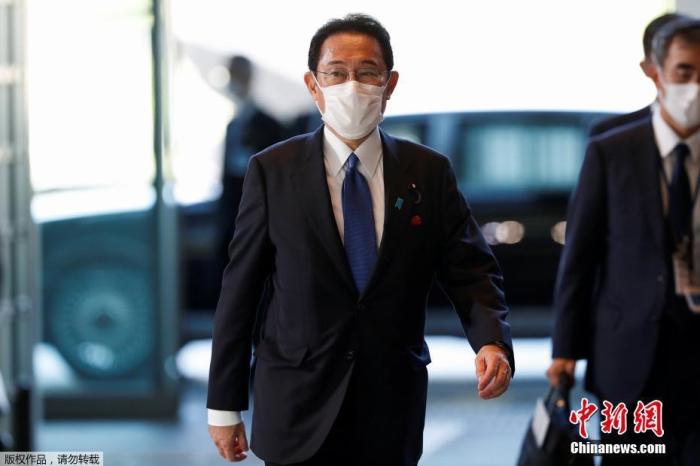China News Service, April 6th, according to Kyodo News, on the 5th, the Japanese government submitted to the Congress a related bill aimed at strengthening economic sanctions against Russia.
The bill includes amendments to the Foreign Exchange Act to prevent crypto assets (virtual currencies) from becoming sanctions loopholes and amendments to the Act on Interim Measures for Tariffs to revoke the “most-favored-nation treatment” of Russia.
Data map: Japanese Prime Minister Fumio Kishida.
The report pointed out that the revision of the "Foreign Exchange Law" will restrict the transfer of virtual currency to third-party accounts and so on.
For virtual currency transaction intermediaries, the Act stipulates the obligation to confirm that the recipient of virtual currency is not the target of sanctions.
According to the amendment to the Law on Provisional Tariff Measures, which revokes the "most-favored-nation treatment" of Russia, the tariff rate levied on goods imported from Russia in the future will be the "basic rate" before the preferential measures are applied.
Among them, the tax rate for salmon has increased from the current 3.5% to 5%, and the tax rate for crab has increased from 4% to 6%.
According to reports, in order to keep pace with Europe and the United States, Japan will strive for the early establishment of the bill.
In addition, the Japanese government also banned the export of luxury cars and other luxury goods exceeding 6 million yen (about 310,000 yuan) to Russia.
The export ban also includes a total of 19 types of motorcycles that exceed 600,000 yen and grand pianos that exceed 200,000 yen.
Unlike luxury goods, the Japanese government has previously banned the export of about 300 items and technologies, such as semiconductors and communication equipment, to Russia in principle, intending to stop the supply of materials that can become Russian military forces.

